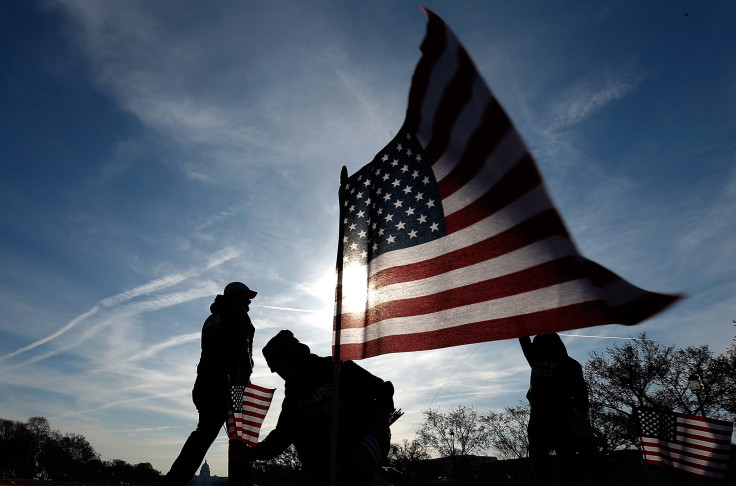Military Veteran Bob Crawford’s Immigrant Wife Faces Deportation, DHS Refuses To Help

The wife of an Army 7th Special Forces Group veteran could be deported if a Virginia immigration court rules against Elia Crawford, the wife of retired Sgt. 1st Class Bob Crawford on Monday.
Elia, 44, fled to the United States illegally 1999 after the deadly Hurricane Mitch that killed 7000 natives in Honduras. She got married to Bob in 2001, when was still on active duty and was being deployed regularly with 7th Group to conduct training missions and counter-narcotics operations in Latin America, Military Times reported.
Immediately after getting married, the couple filed for securing legal residency for Elia, which is when Bob found out that his wife was under deportation orders – orders which would not be waived off by the Department of Homeland Security in the coming years.
“We’ve been fighting this for years,” Bob said, adding, “My wife supported me the whole time I was gone — she ran the house. Behind every good soldier is a good woman.”
Sgt. 1st Class Bob Crawford (ret.) served 20 years in our military.
— Jesse Lehrich (@JesseLehrich) March 1, 2018
his wife, Elia, fled Honduras in 1999 & they were married here in 2001.
now, she's facing deportation.https://t.co/XUII4q8vNg pic.twitter.com/c0LoU8DqFB
A 2007 law called “Parole in Place,” (PIP) protects the spouses, children and parents of active-duty troops or veterans, who entered the country illegally, from getting deported and lets them pursue a green card.
The law – which was originally put in place to prevent the deportation of the wife of Army Sgt. Alex Jimenez, Yaderlin Hiraldo, who crossed over to the U.S. illegally and failed to secure a green card before the death of her husband in Iraq – did not apply in Elia’s case because of the deportation order against her.
“The government won’t terminate that removal so she can get the PIP,” Bob said. “So she’s caught between ICE (Immigration and Customs Enforcement) and DHS.”
According to Leticia Corona, the Crawfords’ attorney, PIP has been “extraordinarily important for military families.”
“It’s a tremendous amount of stress for military personnel in general who deploy to dangerous places to be worried about their loved ones who are undocumented back home,” Corona added.
The Crawfords are pushing for the deportation order be removed so that they could proceed with the paperwork related to PIP. The procedure to get the order removed has become more complicated under the administration of President Donald Trump, who has adopted a stricter stance on immigration and deportation issues.
Despite the current predicament facing his family, Bob refuses to blame the military.
“I know the military takes care of families — because I lived it for 20 years,” he said. “I just feel, right now, we’re caught in this limbo.”
However, Bob fears for Elia, with whom he has two sons aged 12 and 9. He said he did not know what he would do if the Virginia Immigration court refuses to consider alternate options for getting the deportation orders waived on Monday and his wife is forced to return to her homeland.
“Honduras is one of the most dangerous countries in the world, especially for a female if they know she’s a military dependent,” he said. “This is kind of my last hope. I don’t know what’s going to happen.”
After serving 20 years in the military including the 75th Ranger Regiment, a deployment during the Gulf War, and Latin America with 7th Group, Bob was honorably discharged in 2006.
© Copyright IBTimes 2024. All rights reserved.






















